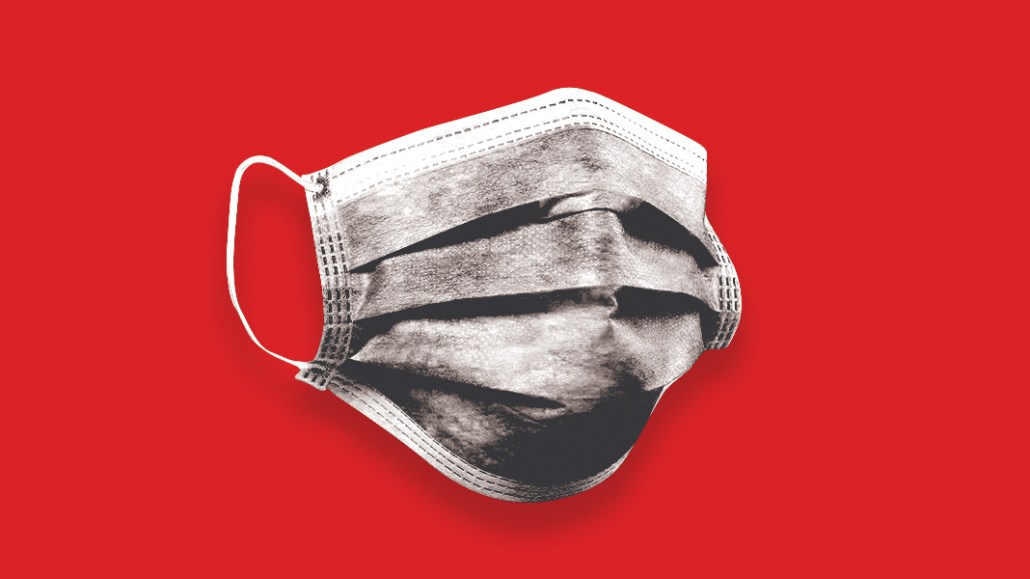Secure your place at the Digiday Publishing Summit in Vail, March 23-25
As coronavirus outbreak continues, ad companies restrict travel and encourage remote work

Agencies are encouraging remote work and restricting travel to certain countries due to the coronavirus outbreak seizing upeconomies globally.
With the fear of contracting coronavirus on the rise, agencies are taking precautions to restrict travel to the affected areas and encouraging employees to work remotely and use video conferencing as needed rather than risk traveling. The agency holding companies say that work for clients is still getting done but much of that is now happening remotely as needed rather than traveling for meetings.
Here’s how other ad holding companies are taking precautions
- WPP’s travel policy: employees are restricted from traveling to China, Hong Kong, Singapore, South Korea, Japan or Italy and must work remotely for 14 days if they are returning from those areas.
- Yesterday morning, IPG sent out a memo detailing the company’s similar travel policy, which restricts travel to China and South Korea “until further notice” and requires employees who are returning from those countries (as well as Italy) to work from home for 14 days.
- Earlier this week, Omnicom shuttered its London office for 48 hours after a potential scare with the virus. Since then, the holding company updated its travel guidance postponing travel to China, Japan, Hong Kong, Iran, Singapore, South Korea, Thailand, Taiwan, or Northern Italy until further notice. Employees returning from those places have also been asked not to return to the Omnicom offices for 14 days.
- On Wednesday, after a case of coronavirus was confirmed, per The Drum, Dentsu Japan told employees to work remotely. The company has also restricted travel to affected countries and cities and told employees to work remotely. The company also released a statement: “We have a robust business continuity team who are working at global, regional and local level to safeguard our people and react in an expedited way, where required. We are continuously monitoring the situation, particularly regarding high risk markets and are adopting all local government recommendations.”
- At Havas, per an internal memo issued by CEO Yannick Bolloré, business travel to areas including South East Asia, Milan and Venice is suspended. Employees coming back from a business trip in those areas have to work from home for 14 days.
- Publicis Groupe has not released a public business statement yet on the potential of coronavirus but has in the last week or so restricted travel at this time to China, South Korea and Italy. The company is also encouraging Skype and video conferencing where possible rather than travel.
All agency groups’ stocks have taken hits along with the broader market. WPP’s shares fell 15%; IPG is down 5%; Omnicom is down nearly 4%; Dentsu Aegis fell 2.5%; Publicis Groupe is also down 5.6%. Agency execs are looking to manage concerns about the virus while also managing business needs. Still, much is unknown about the long-term business impact of the virus.
“So I think the reason we were not specific was just because I think at the moment, it’s really just unknowable,” WPP CEO Mark Read, during the earnings call when asked about the business impact of coronavirus on WPP’s China business. “It’s more unknowable today than probably it was Friday, if we had this meeting Friday of last week, we may [have] given you a different answer then we give you today.”
Omnicom CEO John Wren also addressed the threat of coronavirus to the holding company’s business during Omnicom’s earnings call earlier this week, noting that the company’s events business in China will likely be affected due to cancelations. “With respect to China, we, like most other people, are playing it day-to-day at this point,” said Wren. Wren also noted that “China is an important market, but it’s not a terribly large market for us and our numbers.”
More in Marketing

Why Edward Jones’ agentic AI trial comes with limits
Edward Jones tests agentic AI to drive marketing productivity, taking a measured approach as it stops short of full automation.

Footwear brands navigate uncertainty after latest tariffs flip-flop
Some 99% of footwear sold in the U.S. today is imported, according to the Footwear Distributors and Retailers of America.

Brands at eTail Palm Springs share lessons on the ‘messy middle’ of building AI tools
Here’s a rundown of lessons brands have shared about their AI implementations so far.





